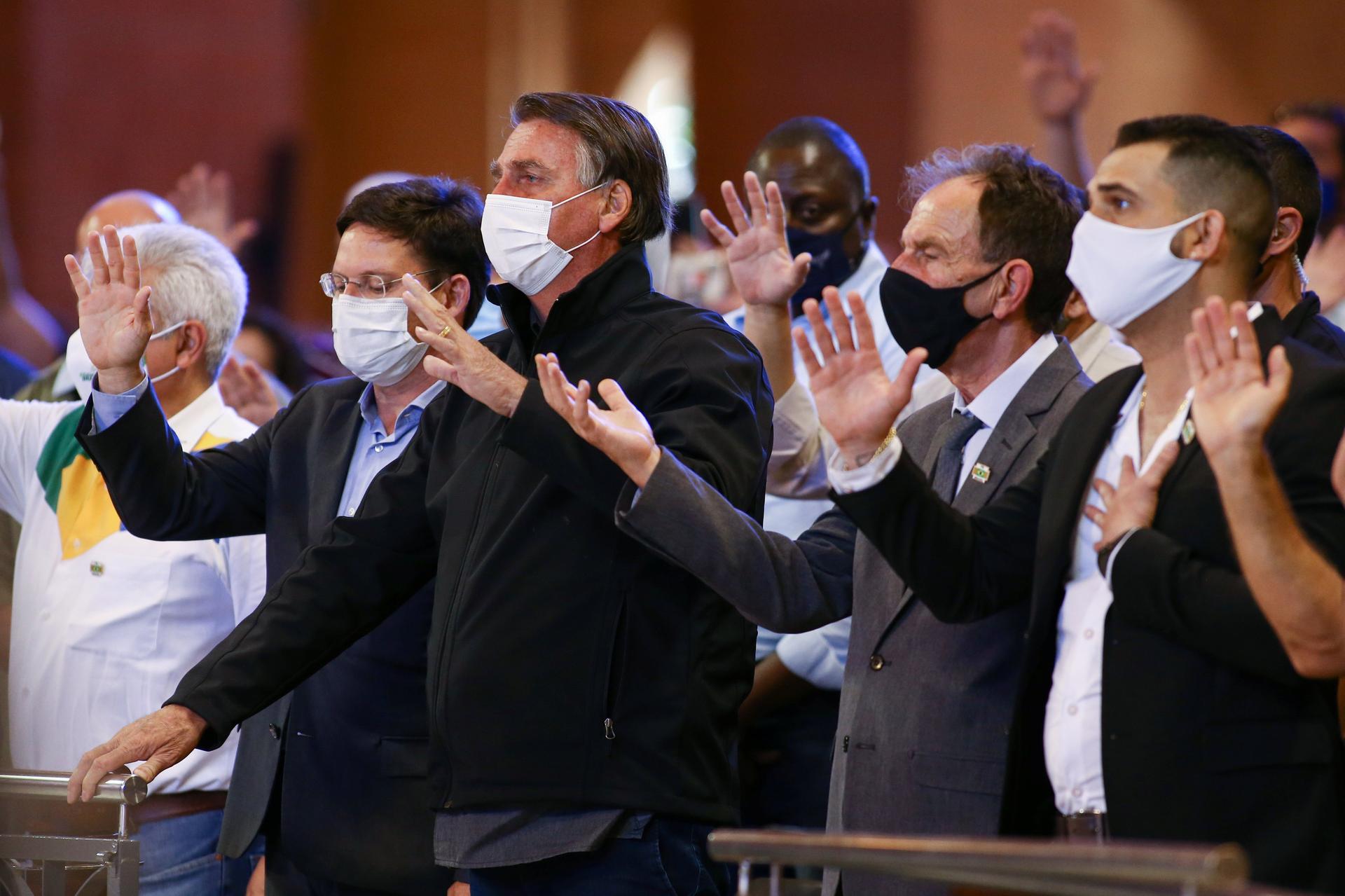SÃO PAULO – Seven months ahead of the Brazilian election, President Jair Bolsonaro and former President Luiz Inácio da Silva – popularly known as “Lula” – are engaged in a fierce battle for the Evangelical Christian vote, which was decisive for Bolsonaro’s victory in 2018.
While the president still has the support of most Evangelicals in Brazil, the continuing economic crisis that has impacted his administration means that support is waning.
Two recent election polls showed that fewer Evangelicals intend to vote for him this year compared to 2018. According to a PoderData survey, released on February 19, 44 percent of Evangelicals said that they would vote for Bolsonaro in October, with Lula getting 32 percent.
In 2018, the presidential candidate appointed by Lula, former Sao Paulo mayor Fernando Haddad, received only 30 percent of the Evangelical votes in the second round. Seventy percent of the Evangelicals voted for Bolsonaro.
The National Transport Confederation (CNT) poll, carried out by Institute MDA, indicated on February 21, that 40 percent of the Evangelicals intend to vote for Bolsonaro, while 30 percent of them would vote for Lula.
Lula has been meeting with several Evangelical politicians and trying to structure a new alliance against Bolsonaro.
Catholics, who still make up at least 50 percent of the population, are throwing their support to Lula. In the PoderData poll, 44 percent of Catholics said they would vote for Lula, with only 26 percent supporting Bolsonaro. The CNT survey showed similar numbers: 47 percent for Lula and 25 percent for Bolsonaro.
According to both polls, Lula is leading the presidential race, with CNT showing him with 42 percent and 28 percent for Bolsonaro; PoderData’s numbers are 40 percent for Lula and 31 percent for the incumbent.
Lula, who served as president from 2003-2010, also seems to have unofficial papal backing. The former president spent 580 days in prison in 2018-19 over corruption charges that were later overturned by the Brazilian Supreme Court. While he was in prison, Pope Francis wrote him a letter in which he urged him “not to be discouraged and to continue trusting in God.”
After his release, Lula visited with Pope Francis for an hour in the Vatican in February 2020.
Shortly after that meeting, and following a Vatican statement critical of the conditions in the Amazon, Bolsonaro shot back: “Well, the pope may be Argentinian, but God is Brazilian.”
Encontro com o Papa Francisco para conversar sobre um mundo mais justo e fraterno.
Foto: Ricardo Stuckert pic.twitter.com/5JAShEvSid— Lula (@LulaOficial) February 13, 2020
The political behavior of Evangelicals and Catholics differ due to a complex set of reasons. Several Evangelical leaders have been operating in politics for decades, having built significant party structures and alliances. Most of them tend to support any administration in exchange for political benefits and joined Bolsonaro as part of a power strategy. The Catholic Church, on the other hand, is less overtly partisan.
“At the same time, the support to Bolsonaro derives from the idea that he represents the retribution of non-Catholics after a long historical process of political marginalization,” said Francisco Borba Ribeiro Neto, director of the Center of Faith and Culture at the Pontifical Catholic University of Sao Paulo.
Such a process was lately reinforced by the “cultural canceling” of Evangelical values by the political and cultural elites, Ribeiro Neto added. All those aspects created a kind of group identity among Evangelicals, who thus tend to vote in a bloc.
“Their [Evangelicals] vote is clearly confessional. The Catholic vote against Bolsonaro does not have a religious component. It reflects the general population’s disillusionment with the president,” he said.
The distancing from Bolsonaro by Catholic voters has been further affected by the president’s erratic attitude towards the Brazilian church.
Although he says he is a Catholic, Bolsonaro is married to an Evangelical, and frequently accompanies her to neo-Pentecostal services. Before the presidential campaign, in 2016, he traveled to Israel with an Evangelical leader and was baptized by him in the River Jordan.
While he welcomed several Evangelical ministers and politicians at the presidential palace and gave private audiences to many of them, Bolsonaro has met with only a handful of Catholic leaders since he assumed office.
He was severely criticized on several occasions by the Brazilian bishops due to his anti-environmentalist policies, which led to a surge in the deforestation of the Amazon and other areas of Brazil, and due to his denialist approach to the COVID-19 pandemic.
Although several scientific and healthcare authorities alerted him that he should impose social distancing measures and even a lockdown in Brazil in order to contain the spread of the virus, he refused. He also blamed state governors and mayors who established social restrictions for Brazil’s current economic crisis. Brazil’s COVID-19 death toll is over 646,000.
Critical statements released by the National Conference of Bishops of Brazil (CNBB) and remarks by individual bishops have at times provoked critical reactions from Bolsonaro and his allies, causing more damage to an already complicated relationship.
During the presidential campaign, Bolsonaro has directly attacked CNBB, calling it the “rotten side” of the church.
“At the same time, he has strongly supported the Evangelicals. He even appointed a ‘terribly Evangelical’ Supreme Court justice [André Mendonça],” said José Eustáquio Diniz Alves, a demography expert who worked at the Brazilian Institute of Geography and Statistics.
Diniz Alves said he thinks that Catholics will overwhelmingly support Lula, something that may be important if he is to be victorious in his presidential campaign.














